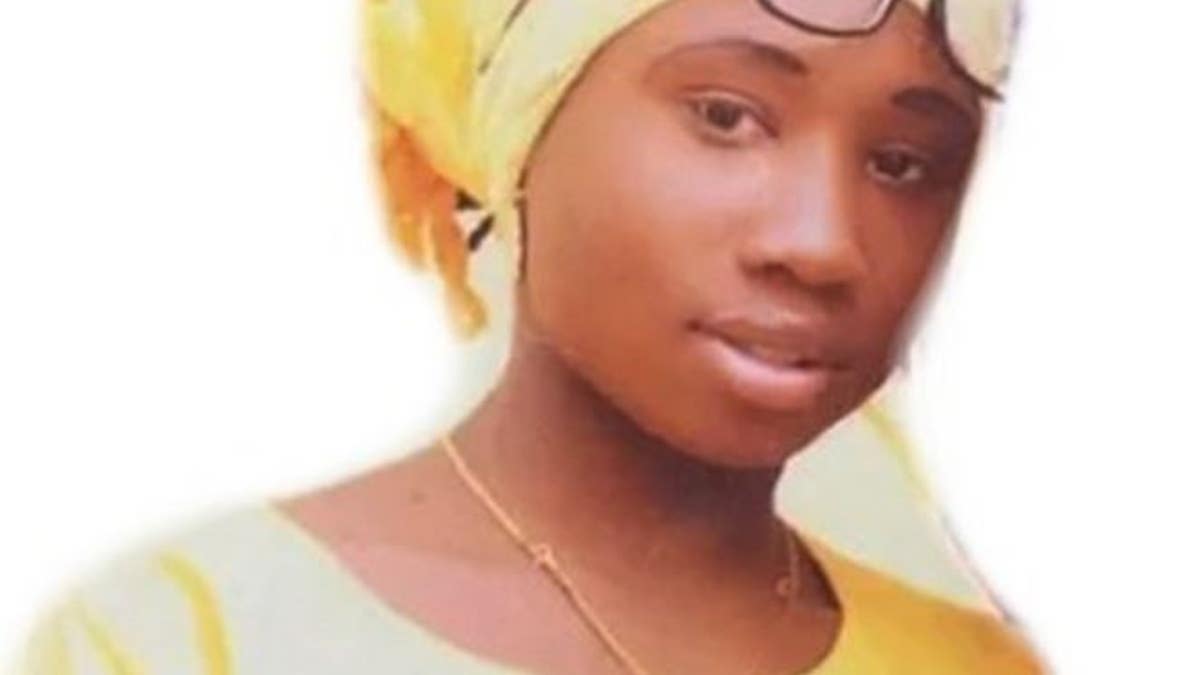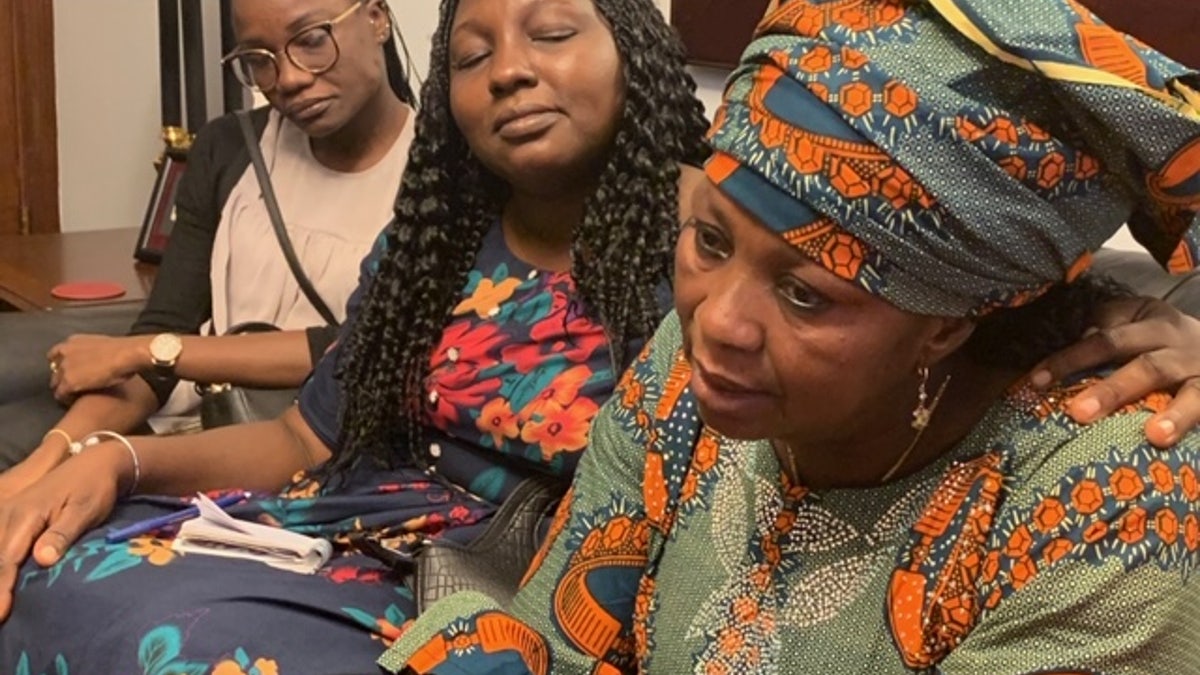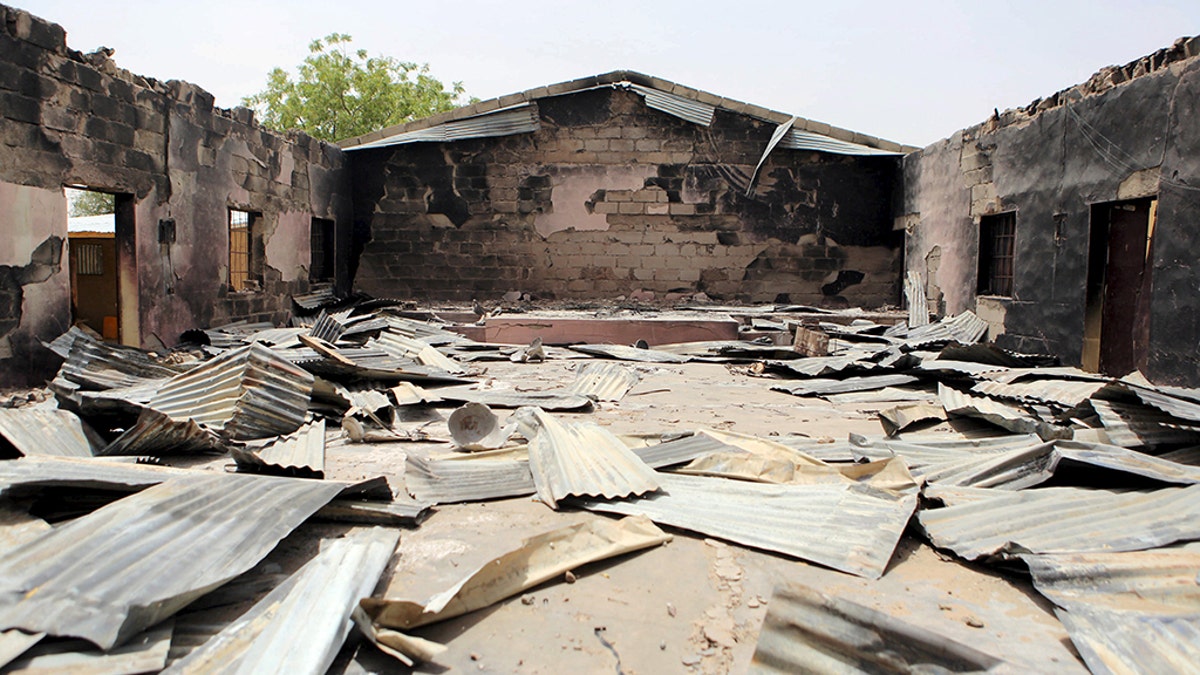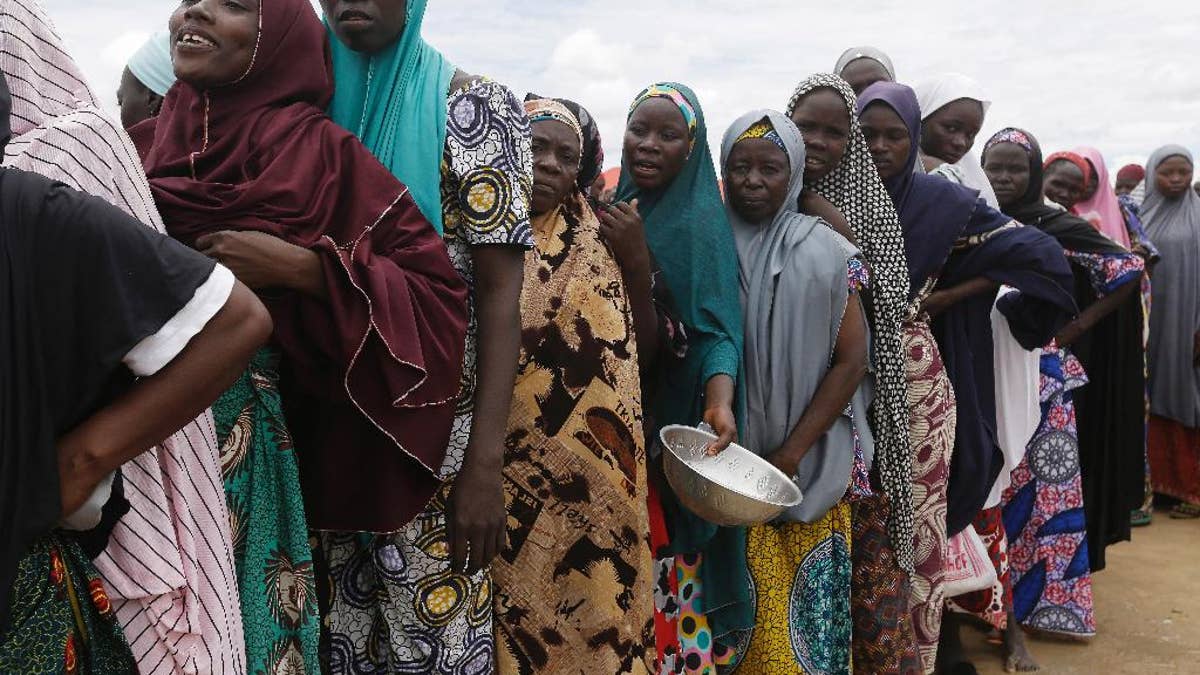
Leah has been held captive by Boko Haram in Nigeria since early 2018 for refusing to renounce her Christian faith (Save the Persecuted Christians)
It has been almost 18 long and painful months since Rebecca Sharibu’s teenaged daughter Leah was kidnapped from her classroom by Boko Haram Islamic militants in Nigeria. While Leah’s schoolmates were eventually freed, the ISIS-affiliated insurgents refused to release the soft-spoken student because she would not relinquish her Christian faith.
Now, Sharibu is turning to the U.S government in a desperate plea for her child’s life.
“I have brought my cry here. Leah is a beautiful child, she loves the Lord and I am so proud of her for not giving in,” Sharibu told Fox News. “But she has spent her 15th and 16th birthdays in captivity and we need her home.”
The anguished mother is part of a small delegation of Nigerian activists to have descended on Washington this week with the support of charity and watchdog group Save the Persecuted Christians and coalition member the International Committee on Nigeria (ICON). They are determined to shine a light not only on Leah’s plight but illuminate the harrowing and increasing persecution against Christians in Africa’s most populous nation.
Those trapped within the bloodletting vow it is not only Boko Haram that has wrapped their lives in trauma and suffering, but other Muslim-dominant herdsman factions such as the Fulani, who are purportedly trying to erase them from the map.
For Sharibu, the nightmare began on February 18, 2018, when Leah was abducted by the hardline Salafist group, who pledged allegiance to ISIS four years ago, along with more than 100 of her classmates in Dapchi. Five girls died in captivity and the others were eventually released. The whereabouts of Leah, who was just 14 at the time of her abduction, remains unknown.

Rebecca Sharibu and other Nigerian female activists fighting for Christian rights in Washington this week (Save the Persecuted Christians)
The last time Sharibu saw her daughter’s face was in a video released last August by her captors. She was swathed in the traditional Islamic niqab and pleading for the Nigerian government to bend to the militant’s demands, and they threatened that they had only months to accede or Leah would be killed.

General view of a church that residents say was burned by Boko Haram militants is seen in Damasak March 24, 2015. Boko Haram militants have kidnapped more than 400 women and children from the northern Nigerian town of Damasak that was freed this month by troops from Niger and Chad, residents said on Tuesday. (Reuters)
The passage of time has brought nothing but arduous silence, and activists fear she is also being held as a sex slave and subjected to the most inhumane treatment imaginable.
“I am here just to plead with the government of the United States to please put pressure or assist the Nigerian government to ensure that Leah is released, to ensure that us Christians at home are given some relief,” Sharibu continued. “We are a democratic nation and we need to have freedom of religion, and we know that is the heart of the United States.”
IRAQ HANDING OUT THOUSANDS OF DEATH SENTENCES IN HASTY TRIALS FOR ISIS FIGHTERS
In the words of Alheri Bawa Magaji, a member of the mostly Christian Adara tribe and impassioned activist for her people, it is tantamount to genocide.
“Christians are being phased out, and most Nigerians don’t even know what is really happening in these remote parts of the country because it is being suppressed,” the 38-year-old, who reminisced on growing up in a peaceful parcel of Nigeria where both Christians and Muslims peacefully co-existed, claimed. “The militants come to remote areas; leaving dead bodies and limbs and the blood of children all over the place.”
The attacks in recent times have been relentless. Earlier this month, suspected Fulani herdsmen slaughtered and kidnapped dozens of Christians and burned at least 12 houses to the ground, activists say. In May, local pastors and Christian leaders documented that at least 30 lives had been lost in the mayhem and more than 20 houses torched into oblivion. Some 17 Christians are reported to have been snatched from a church choir practice in Kaduna state on the same night gunmen stormed a Baptist Church to kill at least one and take two more hostages.
In April, militant herdsmen stormed a morning service in Benue State, claiming the lives of two priests and 17 parishioners, reportedly before descending on the embattled community in which scores of homes were obliterated and the livelihoods of hundreds – from farmland to food barns – were looted or set on fire.
Yet locals say such atrocities are merely the tip of the sword.
“Fulani men, hundreds of them wearing black or military uniforms enter communities singing war songs that the owner of the land has come and the settlers should leave,” Magaji detailed. “Pregnant women are cut open and their babies are removed, pregnant women are being stepped on and rushed to the hospital to save the baby. One woman lost three babies in front of her and had her limbs cut off.”

FILE-In this file photo taken Saturday, Aug. 27, 2016, women displaced by Islamist extremists wait for food to be handed out to them at the Bakassi camp in Maiduguri, Nigeria. Many say the dangerous journey is preferable to the hunger, humiliation and inhumane conditions in refugee camps where more than 1 million Nigerians, displaced by Boko Haram, are waiting to go home. (The Associated Press)
Magaji also pointed to the less direct casualties of such persecution, namely girls’ education.
“The girls aren’t going to school because they are scared. For years, they have been getting kidnapped from their schools,” she said. “We are desperate for our girls to be able to get a proper education.”
Moreover, Mercy Maisamari – also a member of the Adara community – lamented that kidnapping of Christians has become “almost normal,” and something she too survived in the late fall of 2017 after herdsmen assailed their home and abducted her along with her mother and two female cousins. They were forced to trek for 14 hours to the militant camp and held in harrowing conditions until her father could string together enough funds to pay the ransom.
“He was also brutalized; he could not move or speak for some days because he was beaten so badly,” Maisamari, now 29, recalled. “They are trying to take everything from us; our lands and our houses and leaving us so we have nowhere to go.”
NUNS SEXUALLY ABUSING MINORS COULD BECOME NEXT CATHOLIC CHURCH SCANDAL
Right now, Nigeria is half Christians and half Muslims. Christians dominate the south, while Muslims make up the majority of the north and middle belt.
According to Save the Persecuted Christians, some 6,000 were slain across Nigeria in the first half of last year alone. Open Doors USA ranks Nigeria as 12th on its annual list of countries to watch, lamenting in its report that Christians outside the southern sector “are treated as second-class citizens” and subjected to “physical injury, loss of property and pressure to give up Christianity.”
For its part, Save the Persecuted Christians is urging Washington to appoint a Special Envoy to Nigeria to help those who deem their situation powerless. While that is yet to happen, Tony Perkins, who on Monday was elected chair of the U.S. Commission on International Religious Freedom (USCIRF), affirmed that as a key component of the Commission’s Religious Prisoners of Conscience Project, he has adopted Leah’s case and vowed to keep fighting for her.
The Nigerian Embassy in Washington and the Ministry of Foreign Affairs did not immediately respond to a request for comment.
“For now, we are praying for Leah,” added Gloria Puldu, President of the Leah Foundation. “Whatever she is going through – we know the actions of Boko Haram are so brutal.”
